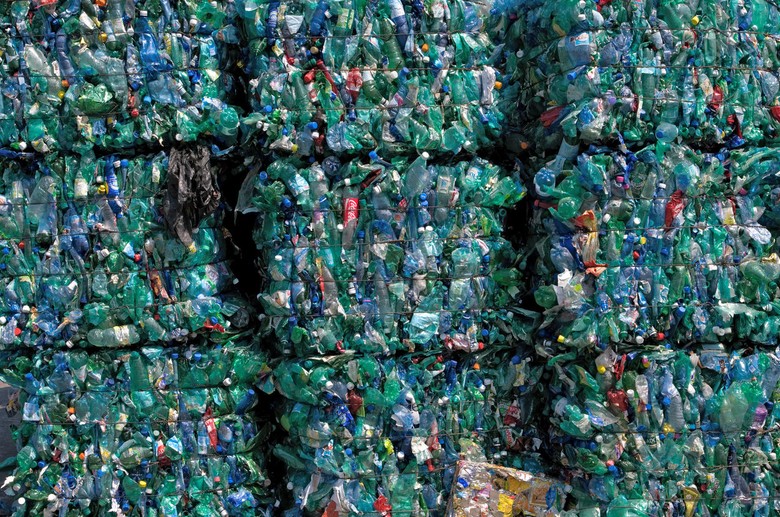Recycling industry faces crisis as plant closures accelerate across Eu…
main text
Recycling industry faces crisis as plant closures accelerate across Europe

Getty Images
Bales of plastic containers prepared for mechanical recycling.
The European Union's plastic recycling industry is at a breaking point, the trade group Plastics Recyclers Europe warns in a March 19 statement.
A sharp decline in domestic production, increased imports, and rising economic pressures are forcing company closures.
The total capacity of facilities that shut down in 2024 doubled compared with 2023, and the situation is intensifying in 2025, impacting both small and large companies alike, PRE added.
In the Netherlands alone, seven plastics recyclers closed doors in 2024.
"Now more than ever, decisive action is essential," said PRE President Ton Emans. "We urge EU policymakers to take a fast and strong political stance, introducing effective import controls and enforcing existing legislation, including the restriction of importing materials which do not meet equivalent EU sustainability and safety standards. These measures are crucial for the plastic recycling industry's survival, which has already invested 5 billion euros ($5.4 billion) between 2020 and 2023 just to meet mandatory targets."
European recyclers are grappling with high energy costs and soaring input waste costs, which have increased operational expenses over the last few years. They are being undercut by cheaper imported materials, which PRE reports often come with fraudulent claims due to the lack of transparency in the origin of materials.
Today, imports of both recycled and virgin polymers account for over 20 percent of EU polymer consumption, while domestic recycling production has declined by 5 percent for most polymers.
Data from Plastics Europe shows that 2023 marked a drop in European plastics manufacturing and a decline in mechanically recycled plastics production for the first time.
Compared with 2022, EU plastics production plunged 8.3 percent to a total of 54 million metric tons. The production of mechanically recycled post-consumer plastics decreased by 7.8 percent, to 7.1 million tonnes. By contrast, global plastics production rose by 3.4 percent, which means Europe's global market share has shrunk further, to 12 percent. Although Europe maintains a positive trade balance in value, it became a net importer of plastic resins and finished goods, with resin exports dropping 25.4 percent from 2020 to 2023.
EU plastic production is projected to regress to levels last seen in the year 2000, even as polymer consumption continues to grow.
At the same time, European exports of plastic waste to countries outside the Organisation for Economic Co-operation and Development (OECD) continues to rise. Plastic waste exports from the EU grew 36 percent in 2024 compared with 2022.
These trends have resulted in the slowest plastic recycling capacity growth recorded in years. Following the trend from 2022, growth in installed plastic recycling capacity continued to slow down in 2023 to 6 percent year-on-year. The previous year the growth rate stood at 10 percent, down from 17 percent in 2021.
Total installed recycling capacity reached 13.2 million tonnes, up from 12.5 million tonnes in 2022. PRE estimates Europe's installed chemical recycling capacity at 150,000 tonnes, with pyrolysis being the dominant technology.
The association estimates that Europe would require an installed capacity of 16 million tonnes by 2025 to reach the recycled content targets set on the PPWR, which means the targets for 2025 are falling short.
"Without recognizing plastic recycling as a strategic sector and effectively utilizing the trade defense measures to safeguard European production against further distortions, the EU's industry will continue to erode, undermining the bloc's commitment to a circular plastics economy, resource independence, and green jobs," PRE concluded.
* Source : https://www.plasticsnews.com/news/european-recycling-operations-face-crisis-plants-close
* Edit : HANDLER
